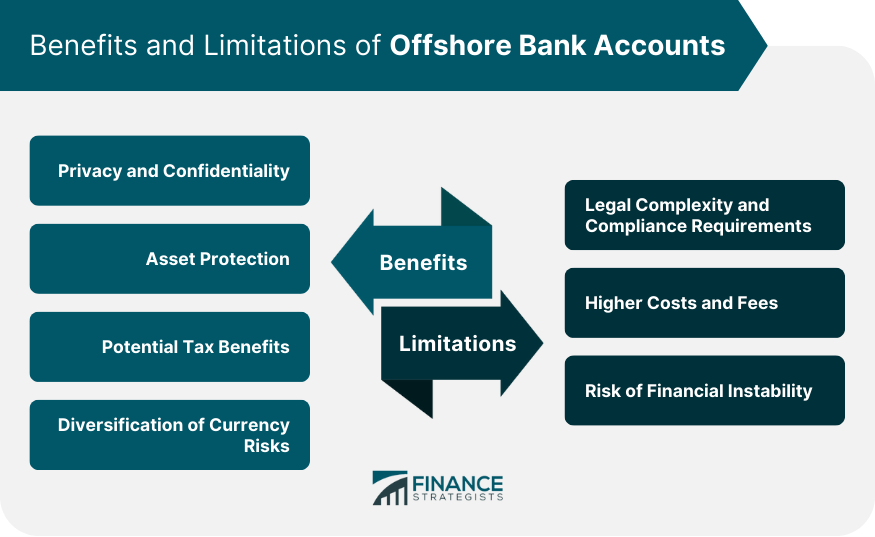Offshore Company Formation: Professional Tips and Insights
Offshore Company Formation: Professional Tips and Insights
Blog Article
Comprehending the Lawful Effects of Offshore Business Development

Lawful Framework for Offshore Business
When developing an overseas company, comprehending the lawful structure governing its formation and operation is critical for compliance and risk administration. Offshore firms run under certain regulations and regulations that differ from those of onshore entities. The legal framework for offshore companies commonly includes provisions for company registration, shareholder demands, director duties, and tax obligations.
Company registration involves submitting the needed paperwork to the proper governing authorities in the picked territory. This procedure commonly calls for detailed details concerning the firm's framework, investors, and designated tasks. Furthermore, offshore companies should abide by specific shareholder demands, such as preserving a register of shareholders and maintaining this details up to day.
Supervisors of overseas firms have fiduciary tasks to act in the most effective rate of interests of the company and its shareholders. They are in charge of supervising the business's operations, guaranteeing compliance with all pertinent legislations, and handling dangers successfully. In addition, comprehending the tax obligations of an overseas business is necessary to prevent any potential lawful issues. By adhering to the lawful framework controling offshore firms, companies can run with confidence while decreasing legal threats.


Tax Obligation Ramifications and Laws
Recognizing the tax obligation ramifications and regulations is critical when thinking about the establishment and operation of an offshore company. Offshore business are frequently subject to favorable tax obligation routines, providing reduced or no tax obligation rates on foreign-earned earnings.
Tax guidelines for overseas companies vary dramatically across jurisdictions, and it is important to look for skilled guidance to comprehend the details needs and obligations. Failure to abide by tax obligation laws can result in serious repercussions, consisting of substantial fines, reputational damages, and also lawsuit. In addition, overseas territories might have reporting responsibilities to disclose monetary info to appropriate authorities. Extensive understanding of tax obligation regulations and guidelines, as well as appropriate tax planning, are important to ensure the effective and certified procedure of an overseas business.
Compliance Demands and Coverage
Guaranteeing conformity with regulatory needs and maintaining exact reporting are important aspects of managing an overseas company efficiently and transparently. Offshore companies must stick to the legislations and guidelines of both the territory in which they are incorporated and any various other pertinent jurisdictions where they conduct organization.
In enhancement to regulative conformity, overseas business are typically subject to reporting needs to make certain transparency and avoid illegal tasks discover this info here such as cash laundering or tax evasion. Reporting commitments may include divulging information about the business's possession framework, financial activities, and beneficiaries. This info might require to be shared with governing bodies, tax obligation authorities, or various other governmental agencies, depending on the territory.
Keeping complete and precise records is important for demonstrating compliance and responding to any type of queries or audits efficiently. Offshore companies ought to execute robust coverage systems and inner controls to make certain that they satisfy all lawful demands and run with stability.
Asset Defense and Privacy Laws
In the realm of overseas business formation, a vital factor to consider is the interplay between property defense techniques and privacy laws. Offshore territories typically offer boosted asset security devices that protect assets from potential dangers such as legal actions, financial institutions, or political instability in the home nation. By structuring possessions within an offshore business, people can safeguard their wide range and diversify their holdings across various legal structures. Privacy legislations in offshore jurisdictions contribute to keeping discretion and anonymity for firm owners. These laws restrict the disclosure of delicate details, making it challenging for external events to accessibility details regarding the company's procedures or ownership structure. This degree of privacy can be helpful for individuals looking for to safeguard their assets from public scrutiny or competitors. It is essential for individuals to navigate these regulations morally and transparently, making certain conformity with both offshore laws and the legal needs of their home country. Eventually, understanding the elaborate relationship between property defense techniques and personal privacy legislations is paramount when taking into consideration offshore company development.
Challenges and threats to Take into consideration
When venturing right into offshore company formation, prudent factor to consider of potential risks and challenges is essential for educated decision-making and critical planning. Additionally, political instability or adjustments in overseas territories can posture a danger to the connection of procedures and the security of assets held by the offshore company.
Obstacles might also emerge worrying the complexity you can try here of offshore company structures and the demand for experienced lawful and financial guidance to browse the intricate regulatory frameworks of different territories (offshore company formation). Keeping conformity with differing international laws and guidelines, in addition to prospective language obstacles and social differences, can further make complex the overseas business development procedure. It is critical to be mindful of these threats and obstacles prior to proceeding with overseas company formation to minimize prospective pitfalls and guarantee a lawfully audio and smooth establishment
Conclusion
To conclude, overseas business development includes navigating intricate lawful structures, tax obligation ramifications, compliance requirements, and privacy legislations. Understanding these elements is crucial for minimizing dangers and obstacles related to offshore organization operations. It is necessary for wikipedia reference companies and people thinking about overseas firm development to look for professional support to make certain conformity with guidelines and to secure their assets effectively.
The legal structure for overseas companies normally consists of arrangements for company enrollment, investor demands, supervisor duties, and tax obligation obligations.
Supervisors of offshore firms have fiduciary duties to act in the ideal interests of the business and its shareholders. By adhering to the legal framework controling overseas business, organizations can operate with confidence while decreasing lawful risks.
Furthermore, political instability or adjustments in overseas territories can pose a risk to the connection of procedures and the defense of possessions held by the overseas firm. - offshore company formation
In final thought, offshore company development entails navigating complex legal frameworks, tax obligation implications, conformity requirements, and privacy regulations.
Report this page